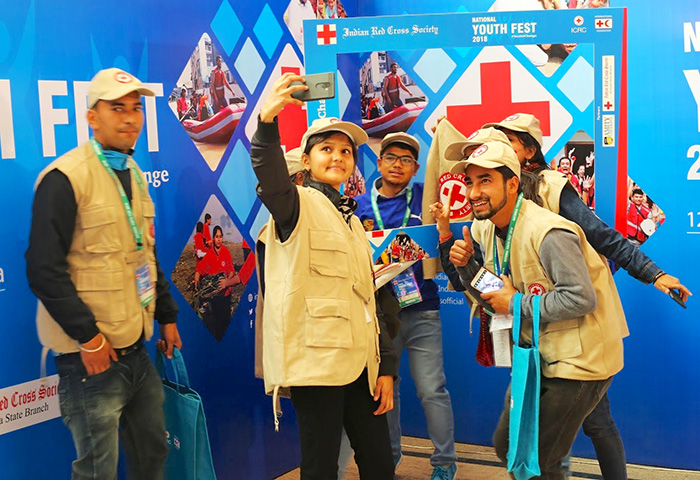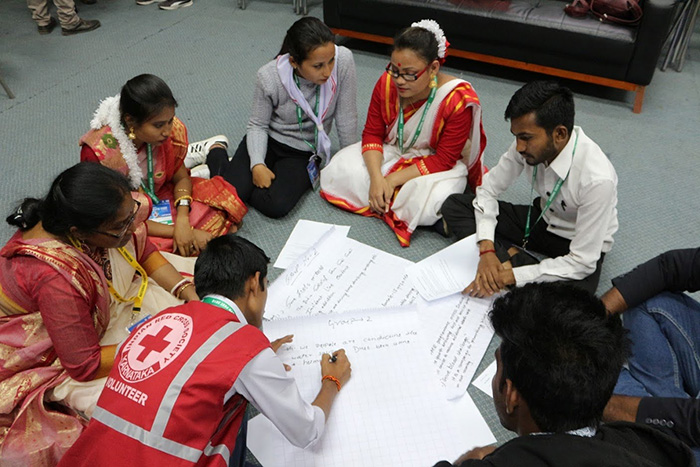Enabling Safe Spaces for Youth: International Youth Day 2018
09.08.2018

August 12th is celebrated across the globe as the International Youth Day. The theme for 2018 is ‘Safe Spaces for Youth’ to enable them to contribute to world peace and social integration.
Indian Red Cross Society realised the focal role of young people in volunteering way back in 1925. It established the Junior Red Cross in schools and the Youth Red Cross in colleges. Today, it has a rolling annual membership of 10 million in the country. In our context, people under 30 years of age are considered youth. Currently, a sizable proportion of our 300,000 volunteers are below 30 years of age.
Engaging young people is also linked to the core mandate for promoting volunteering, humanitarian values and Fundamental Principles. These are positive strategies to bring harmony in society and attain global peace.
The Indian Red Cross runs a number of activities for youth across the nation to motivate young people to raise awareness on hygiene, sanitation, HIV/ AIDS and to promote environmental concerns, such as climate change and global warming, and such other contemporary subjects.
IRCS provides the youth with vocational training through centres in many State and Union Territory branches. For example in several states such as Assam, Andhra Pradesh, Haryana, Punjab, Dadra & Nagar Haveli, Gujarat, Karnataka, Tamil Nadu, youth are trained in home health care attendants’ course, home nursing, general nursing, computer training, embroidery & stitching and other several vocations. In several districts centres are being run to empower differently abled youth. With the objective of empowering young women to become self-reliant, some branches have livelihood support programmes. For example, for the girls of fisher community in coastal areas training and financial empowerment projects are being run. The Indian Red Cross also imparts first aid training to the youth who become Red Cross volunteers in times of need and crisis. Youth constitute a significant portion of the Social and Emergency Response Volunteer Programme (SERV) established in 18 States and Union Territories.
Youth development is also addressed by the Red Cross branches by organizing Junior and Youth Red Cross national, inter-state and inter-district camps. The camps help to create opportunities for friendly interaction and cultural exchange. Such camps also allow youth to share their experiences and learn more about the Red Cross.
In its Strategy 2030, Indian Red Cross has set the target of ensuring that at least 65% of educational institutions in the country would get exposure to the Red Cross through its Junior and Youth Red Cross wings.

Indian Red Cross, as a part of the global Red Cross network, gets to learn new ideas and priorities from its international partners. There are international level youth meets and cultural exchange opportunities in which Indian youth are participating. These participants bring the best practices learnt in the meets and become ambassadors of social & behavioural change.

